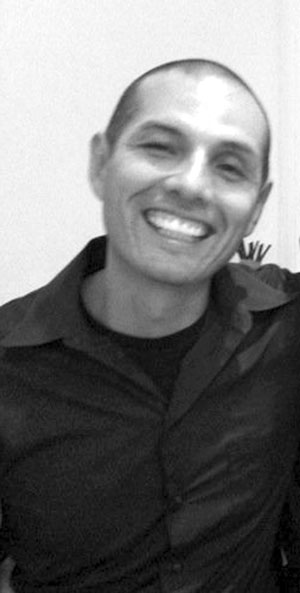 [/media-credit]
[/media-credit]
Judge Daniel FitzGerald dismissed the Manhattan jury on Thurs., Dec. 22, after repeated statements from its members that they could not come to agreement on the top charge of second-degree murder in the strangling death of Mercado, a 39-year-old gay man, in his Avenue C apartment.
The prosecution charged that Robinson, who is 24 and also gay, intended to kill Mercado. The defense argued that Robinson never had the legally required intent to convict him of murder.
The defendant first told police and prosecutors in written and videotaped statements that he acted in self-defense when he strangled Mercado. But when Robinson testified, he said the death was an accident that occurred while the two men used a rope on Mercado during an erotic asphyxiation session.
The jury weighed second-degree murder, which has a maximum sentence of 25 years to life, second-degree manslaughter, which has a maximum sentence of 15 years, and criminally negligent homicide, which carries a maximum of four years. A defendant who is convicted of either of the two lesser charges would be eligible for release after serving six-sevenths of the sentence, but a second-degree murder conviction requires at least 25 years in jail.
Jurors had to consider the charges in that order and could not move on to manslaughter or criminally negligent homicide without first finding Robinson not guilty of murder and then manslaughter.
Jurors started deliberations on Dec. 14, but by the following afternoon first signaled they had a problem. FitzGerald told them they were very early in their deliberations and could not declare themselves to be deadlocked.
After they continued to deliberate on Dec. 16, 19 and 20, the jury again informed the judge they were deadlocked, but were pressed to continue deliberating on Dec. 20 and on Dec. 21 and 22.
On the afternoon of Dec. 22, one of the jurors, a man, sent the judge a series of notes saying he had a “conscientiously held belief” about the case and could not be swayed by his fellow jurors. The judge called that juror into the courtroom and instructed him that he should not compromise his beliefs in order to settle on a verdict but should continue deliberating.
Shortly after that, the full jury came into the courtroom requesting to have the charges and instructions read back to them. When FitzGerald asked whether they expected him to spend 45 minutes doing this all over again — as he had originally done before deliberations began on Dec. 14 — one of the jurors laughed aloud. The judge said it seemed as though jurors agreed that repeating the full instructions was “silly,” and told them to come back to him with a more specific request.
After the jury left the courtroom, Annie Costanzo, one of Robinson’s two Legal Aid Society attorneys, complained that the judge’s use of the word “silly” belittled a legitimate request from the jury. That provoked a sharp response from FitzGerald, who rejected the complaint.
When the jury returned for a second time, they asked whether they could render a guilty verdict if some “element” of the evidence had not been proved beyond a reasonable doubt. As the juror who had indicated he held unswayable beliefs wept, FitzGerald responded that jurors must be convinced of Robinson’s guilt beyond any reasonable doubt.
After another brief round of deliberations, the jury returned to say they remained deadlocked, at which point a mistrial was called.
After the jury was dismissed, two of the jurors, both women, who insisted on anonymity, said there was a consensus among all 12 that the defendant was “not believable,” but beyond that opinions varied widely.
One of the women said, “There was a sexual environment, but it was not clear what that meant.”
The two jurors agreed that the forensic evidence presented by the prosecution was not sufficient to lead to a unanimous verdict on second-degree murder.
The prosecution’s case relied almost entirely on the testimony of Dr. Rachel Lange, the forensic pathologist in the city Medical Examiner’s Office, who said that Mercado’s injuries showed he had been in a fight.
“All these injuries are indicative of somebody struggling to get away from a ligature,” Lange said during testimony on Dec. 8. Autopsy photos that were put into evidence showed large, lividly colored bruises that encircled Mercado’s neck, as well as scrapes and bruises on his cheek and jaw, above one eye and behind one ear.
Leila Kermani, one of two assistant district attorneys prosecuting the case, said Robinson might have killed Mercado as part of a robbery. She noted that the defendant stole Mercado’s laptop computer and cell phone. But the prosecution never established definitively what motivated Robinson. The prosecution is not required to prove motive, but jurors can consider it, or its absence, in their deliberations.
Robinson told jurors that he and Mercado met at a West Village gay bar. The younger man said he purchased cocaine on Mercado’s behalf and they then traveled to Mercado’s East Village apartment where they used the cocaine and drank wine.
At the apartment, Robinson said, Mercado showed him how to use the rope, which was part of a uniform the older man wore in a Brazilian dance class. Police found no sex toys, pornography or bondage equipment in Mercado’s apartment. Robinson stood behind Mercado, he said, holding the rope that was wrapped around Mercado’s neck and hands. At one point, he dropped the rope.
“When I let go, he slumped over to the side,” Robinson said during his Dec. 12 testimony. “At first, I was thinking he must be really messed up… . I turned him over and I seen his face and I realized he was dead.”
In what he said was a panic, Robinson called 911 and spent 22 minutes telling the operator that he had killed a man in self-defense and was afraid that another man was coming to the apartment to kill him. He used the names Ted and Tony to identify that second man in various statements.
“I just made up a self-defense story,” Robinson told the jury. “I just was lying. I’m just throwing everything out there.”
Robinson’s attorneys declined comment after the mistrial was declared. The Manhattan District Attorney’s Office said it would retry the case.
With reporting
by Duncan Osborne



































